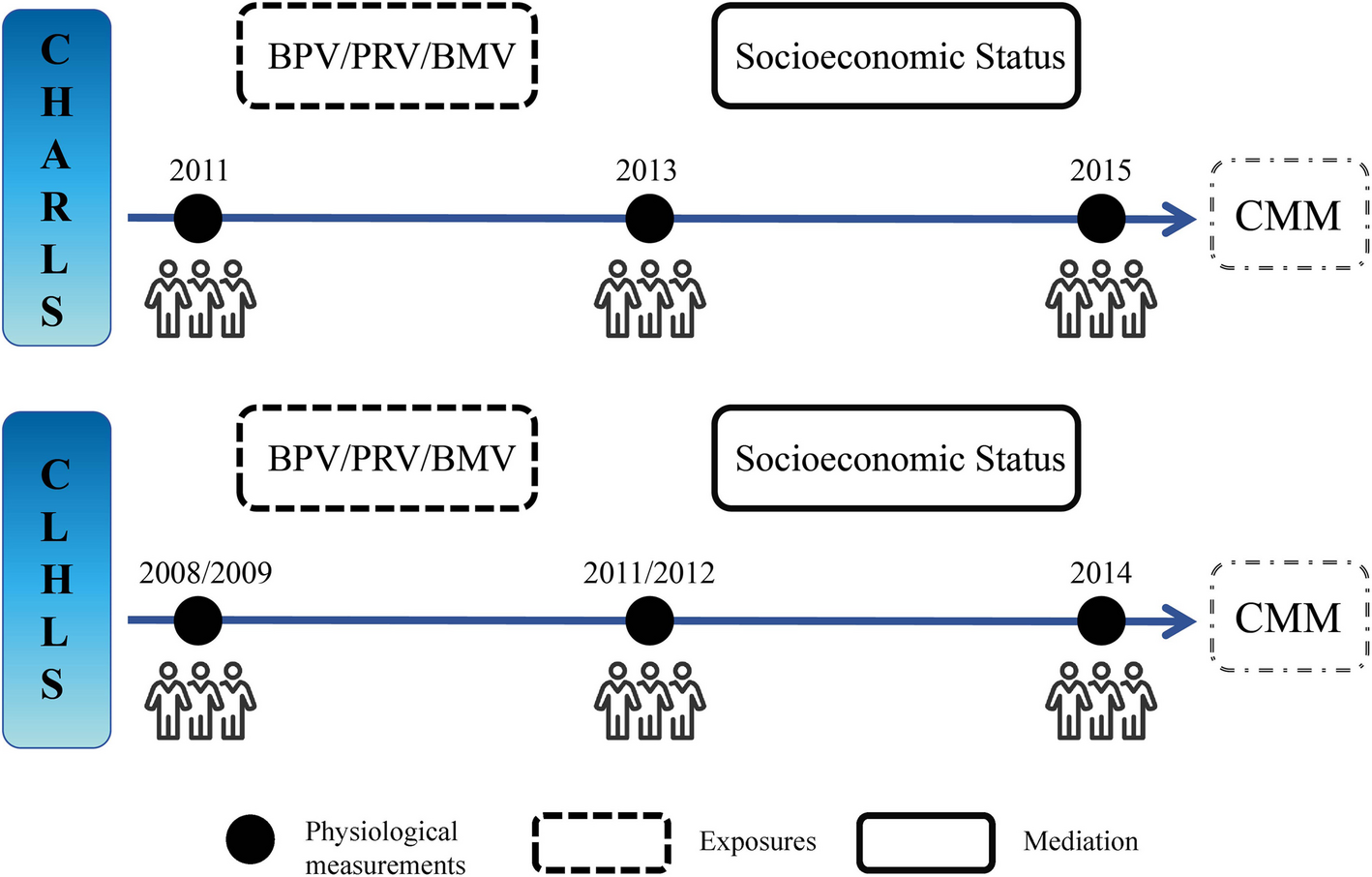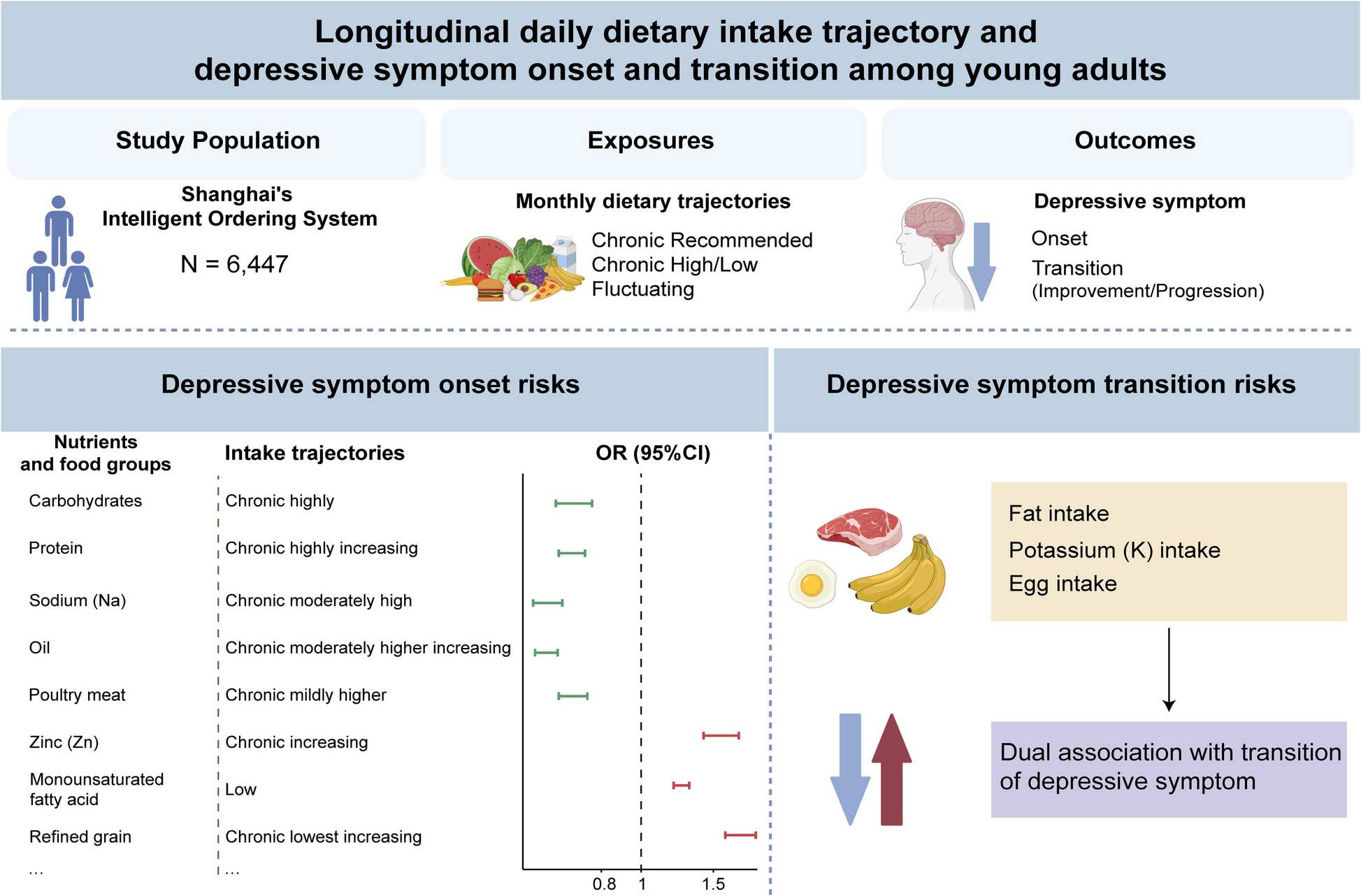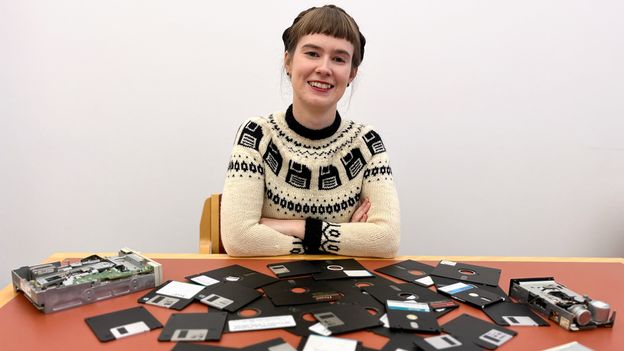Snapchat is experimenting with a new Bitmoji Plaza feature on its web interface, letting users’ Bitmoji avatars mingle in a basic 3D environment. The move marks Snap’s push toward more spatial, avatar-driven interaction in a lightweight form…
Blog
-

Socioeconomic disparities in physiological dysregulation: a longitudinal mediation analysis of cardiometabolic multimorbidity among middle-aged and elderly Chinese | BMC Public Health
Study population and design
This study utilized data from two nationally representative large-scale cohorts: the China Health and Retirement Longitudinal Study (CHARLS) [23] and the Chinese Longitudinal Healthy Longevity Survey (CLHLS) [24]….
Continue Reading
-
Fitch Rates Séché's EUR 300 million Hybrid Notes Final 'B+' – Fitch Ratings
- Fitch Rates Séché’s EUR 300 million Hybrid Notes Final ‘B+’ Fitch Ratings
- Séché Environnement Carried Out Its First Issue of 300 Million of Deeply Subordinated Perpetual Notes with A Coupon of 5.87 %, Reset Periodically MarketScreener
- CORRECTING and REPLACING: Séché Environnement: Green Hybrid Bond Issue – 02.10.25 – News Ariva
Continue Reading
-

Venezuela’s opposition leader Maria Corina Machado wins Nobel Peace Prize
Item 1 of 4 Venezuelan opposition leader Maria Corina Machado gestures at a protest ahead of the Friday inauguration of President Nicolas Maduro for his third term, in Caracas, Venezuela January 9, 2025. REUTERS/Maxwell Briceno
[1/4]Venezuelan…Continue Reading
-

Association between daily dietary intake trajectory and depressive symptom onset and transition among young adults: a longitudinal study | BMC Medicine
Baseline characteristics
As shown in Table 1, we included 6447 young adults, of whom 3040 (47.2%) were female; 3407 (52.8%) were male; 3267 (50.7%) were aged between 16 and 20 years; 2016 (31.3%) were aged between 21 and 24 years; 2883 (44.7%)…
Continue Reading
-

Former Pakistan pacer comes out in support of Asif Afridi amid criticism – Cricket
An undated picture of Pakistan spinner Asif Afridi representing FATA Region in the Hanif Mohammad Trophy 2025-26. — PCB Former Pakistan pacer Amir Yamin has come out in support of uncapped spinner Asif Afridi,…
Continue Reading
-

A large amount of the Universe is missing. Scientists think they may have just found it
You may have heard of dark matter before. It’s the strange, invisible, undetected stuff that makes more than a quarter of all the matter in the Universe.
It can’t be seen, but astronomers know it’s there because it’s acting like a sort of…
Continue Reading
-

Continuing medical education: understanding general practitioners who rarely attend, a cross-sectional questionnaire study among Danish GPs | BMC Medical Education
Main findings
For all GPs, regardless of user type, teachers and course leaders with insight into general practice and looking up specific knowledge related to an individual patient were crucial. Infrequent users of CME preferred self-study and fact-based lectures without participant involvement. However, they were open to courses designed for their own clinic. Although infrequent users preferred group-based learning to a lesser extent than frequent users, 68% versus 85%, it is still among the most preferred CME formats by infrequent users. Infrequent users and partial users were less inclined to attend weekly courses and courses abroad than frequent users. In contrast, frequent users valued interactive learning and did not mind more time-consuming courses. All user groups ranked online education, self-study, and sponsored meetings low, but infrequent users were less reluctant towards these formats.
Among infrequent users, 42% found the current mandatory CME extent appropriate, while 18% preferred it to be extended. Among partial and frequent users 61% and 63% respectively found the current mandatory CME extent appropriate. Additionally, 23% of partial users and 17% of frequent users preferred it to be extended. At first sight, this may seem contradictory to the GPs opposition to being obligated to participate in mandatory CME (72% among infrequent users, 58% and 53% among partial and frequent users respectively). This may indicate a difference between a ‘principled opposition’ to being obligated, which can be overridden by a ‘practical acceptance’ of mandatory CME.
Comparison with other studies
Most GPs preferred CME formats that involve peer engagement and interactive learning, which aligns with findings from other studies [10, 17]. These formats are also known to be the most effective in altering medical-care processes and improving patient health outcomes [18, 19]. But we also found that infrequent users preferred less interactive and less time-consuming formats. We did not find literature that have examined preferences divided by user type nor the consequences. Infrequent users more often relate their educational needs to patient centered knowledge gaps (look it up when needed, exclusively facts, reading on my own) this “point of care microlearning [20] can only rarely be documented and thus goes below the radar of remunerable CME.
Maher et al. [17] found that less than 9% of GPs indicated a preference for ‘totally online’ courses. The COVID-pandemic created a need to deliver education in virtual formats, and educators and health care professionals reported that they did not expect to return to previous models of educational delivery [21]. E-learning can make education mere accessible, immediate, and less time-consuming. Nevertheless, we found that although infrequent and partial users were slightly more inclined towards online education compared to frequent users, online formats were generally not a preferred preference for any user group.
This study showed that most GPs accepted the current extent of mandatory CME or even suggested it should be expanded. This aligns with a former study conducted before the introduction of mandatory CME in Denmark [10], where Danish GPs expressed positive attitudes towards mandatory CME elements if the content was selected by respected peers. Our findings differ from Macdougall et al. [22], who described mandatory training as frustrating, particularly if it is irrelevant or repetitive, characterizing it as a ‘tick-box culture’ and ‘CPD point-collecting’ regardless of engagement, with no allowance for prior experience. However, Macdougall et al. also noted that mandatory training can be beneficial if it is carefully designed, aligned with learners needs, and the topics appears relevant [22].
The high level of acceptance of mandatory CME among Danish GPs may be interpreted through the lens of self-determination theory [23, 24]. It describes that a movement from extrinsic towards intrinsic motivation requires three basic psychological needs: Perceived competence, relatedness, and autonomy. The Danish mandatory CME programme is based on an intensive learning needs analysis [14] which ensures relevant learning (perceived competence). Furthermore, the CME programme offers great variation in educational formats (autonomy). Consistency with the three basic psychological needs may help explain the seemingly contradictory finding of minimal resistance to mandatory CME among Danish GPs. Alternatively, the GPs may view mandatory CME as an opportunity for a break or as an educational guarantee rather than an unnecessary obligation [9].
The reluctance of the infrequent users towards user involvement appears to conflict with peer relatedness and may pose a challenge to learning, as it limits theoretically optimal learning opportunities [18, 19] and may thus contain a paradox. However, we do show that infrequent users engage in learning by participating in activities within their own clinics, and in group-based learning, both of which provide active learning opportunities and social interaction among colleagues (relatedness).
Methodological considerations
The strengths of this study include the use of a comprehensive questionnaire covering various aspects of CME, which was distributed to all GPs in Denmark. The questionnaire was validated through interviews, enhancing the reliability of the data collected [7]. The response rate was 40%, which introduces the potential for response bias, particularly if those with strong positive or negative attitudes toward CME were more likely to respond. The study sample was largely representative of the overall GP population in Denmark, apart from a slightly higher proportion of female GPs [8]. Moreover, the proportion of GPs identifying as infrequent users matched the annual report from Association of General Practitioners [25].
However, there are also limitations. The study was a cross-sectional questionnaire, which limits the ability to draw causal inferences from the observed associations. Using self-reported data introduces the risk of social desirability bias or recall bias, which can be a limitation if GPs are less likely to report themselves as infrequent users. However, the proportion of GPs who classify themselves as infrequent users corresponds with the proportion of GPs who do not use their reimbursement, as reported in the annual report from PLO-E [25]. Additionally, the questionnaire was developed based on a qualitative study with interviews with GPs who have not used their CME funds [7]. This may be a weakness of the questionnaire regarding preferences for CME formats, as it may risk underrepresenting the preferences of frequent and partial users. Nevertheless, our focus was on infrequent CME users, and the questionnaire offered an option to provide additional preferences for formats in the free-text comments, though no new preferences emerged from these comments.
Perspectives
To make CME effective and acceptable, it should align with the core psychological needs of competence, relatedness, and autonomy. Teachers with practical experience and relevant patient-focused content boost perceived competence. Infrequent users prefer self-study and fact-based lectures without user involvement, but they are open to group-based learning and in-practice formats, which should be used strategically to foster relatedness and offer an opportunity to calibrate knowledge, exchange professional experience, and detect the unknown unknown.
Offering a variety of accessible, smaller-scale courses supports autonomy and diversity.
While mandatory CME can be seen as a valuable break or educational guarantee, especially to infrequent users, it must be balanced with voluntary options to avoid demotivating frequent users. Trust in professional integrity, combined with accountability, benefits practitioners, patients, and the healthcare system.
Continue Reading
-

Isolation and genetic characterization of parvovirus from Bengal tiger in China | Virology Journal
Luo S, Liu Y, Xu X. Tigers of the world: genomics and conservation. Annu Rev Anim Biosci. 2019;7:521–48.
Google Scholar
Liu H, Yan Q, Zhao B, Luo J, Wang C, Du Y, Yan J, He H….
Continue Reading
-

A digital dark age? The people rescuing forgotten knowledge trapped on old floppy disks
That means even if data can be extracted from a floppy disk, there is often significant work needed to make it readable on a modern device. Peter Rees, an archivist at the Cambridge History of Innovation Project, likens the process to a form of…
Continue Reading
